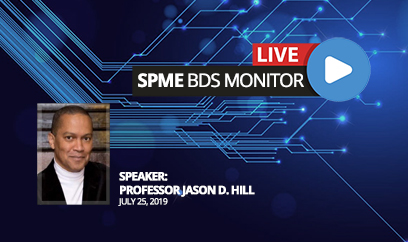The time has come for UMass’ academic departments to be held responsible for particular speakers and events they sponsor on campus.
No departments deserve more scrutiny here than those of political science and sociology, as well as the Middle East Studies Program. Last night, they, among other academic and student groups on campus, sponsored a speech given by DePaul professor Norman Finkelstein. A controversial intellectual who has been fired from several universities for questionable academic credentials and scholarship, according to Jbooks.com, he is widely known for criticizing people who use the legacy of the Holocaust to further a pro-Jewish and pro-Israel agenda.
Finkelstein raises compelling questions about whether people use Jewish victimhood for financial or political advantage and whether criticizing Israel constitutes anti-Semitism. The problem is not that the professor brings light to these issues. Instead, it is his deeper statements regarding the Palestinian-Israeli conflict which call into question his legitimacy as a reputable scholar.
To summarize the background of Finkelstein’s work, he is considered to be a Holocaust revisionist who overemphasizes poorly-conceived Israeli policies while dismissing Arab repression of Jews in the Middle East. He glosses over the fact that Israel allows political participation of Muslims in voting and government, while many Arab Muslim governments reject any notion of allowing Jews to partake in the states’ political processes.
Finkelstein argues that criticism of Israel is immediately met with charges of anti-Semitism, and he has a legitimate point to a limited extent. But being intellectually dishonest about the similarities and differences between Israeli and Arab policies because of a personal vendetta against Jews and the United States invariably constitutes anti-Semitism. Failing to distinguish clearly, as Finkelstein does not, that Muslim terrorist organizations specifically target innocent Jews because of their religion, while Jews do not intentionally target innocent Muslims because of their religion, is not only anti-Semitic. It is also tarnishes and undermines the reliability of scholars when they allow personal grudges, for whatever reason, to supersede efforts to be accurate and objective.
The fact is that we could extrapolate endlessly on the specific elements of the complex Israeli-Palestinian conflict. The point here is not to counter every one of Finkelstein’s controversial claims but to call into question the motives of the particular university academic departments who sponsored the speaker.
And this is when the departments of political science and sociology, and the Middle East Studies Program, should stand in front of a mirror and look directly in their own eyes. These groups will probably claim that they sponsored Finkelstein because the “public has a right to know” and that “all voices should be heard” concerning the Palestinian-Israeli debate.
Don’t be fooled by this justification. Blind support for a diversity of viewpoints is a cunning way of indicating that the departments do not want to be held directly responsible for determining the veracity or honesty of the speaker’s rhetoric. Rather, it gives a free hand to people to say whatever they want without facing the consequences and implications of their words by those who sponsored them.
Why should we as UMass students be critical of these departments when they want to promote open debate on contentious issues? Because the purpose of hosting speakers, and of university education in general, is not merely to expose different points of view, but to make progress towards establishing conclusions grounded in truth.
Students should demand that the academic departments who sponsored the speaker make a forthright public statement expressing whether they think Finkelstein’s views contribute to finding out the truth about the Palestinian-Israeli conflict. If they hesitate for even one second in contemplating the answer, then they have abused their privilege as educators. Regardless, they have already trivialized every student on this campus who wants to become educated on the conflict without being exposed to scholars of questionable reputation who purposefully exaggerate and misrepresent the intricacies of the conflict.
In essence, sponsoring scholars who distort history and contemporary political affairs is not an issue of academic freedom but an issue of academic integrity. If the purpose of this university and its specific academic departments is not to strive for truth but to merely facilitate a marketplace of ideas on campus, then they should continue to host and sponsor a multitude of speakers, regardless of their extreme views, dubious background, or systematic misrepresentation of issues. And it is safe to say that Finkelstein’s thinking embodies all of these characteristics, which enables him to make money off of universities and students in an unethical manner.
But if UMass is committed to strive for something which transcends diversity of thought, no matter how illogical or inaccurate it is, this university should think twice before hosting speakers with dishonest academic reputations, such as Finkelstein. He can afford to distort information, because ultimately he will end up with money in his pocket.
But students who are not as knowledgeable about the issues are subject to being manipulated by scholars like him. They deserve much better from UMass and its departments of political science, sociology, and Middle East Studies Program.
Greg Collins can be reached at gcollins@student.umass.edu.
——————————————————————————–
© Copyright 2007 The Daily Collegian



